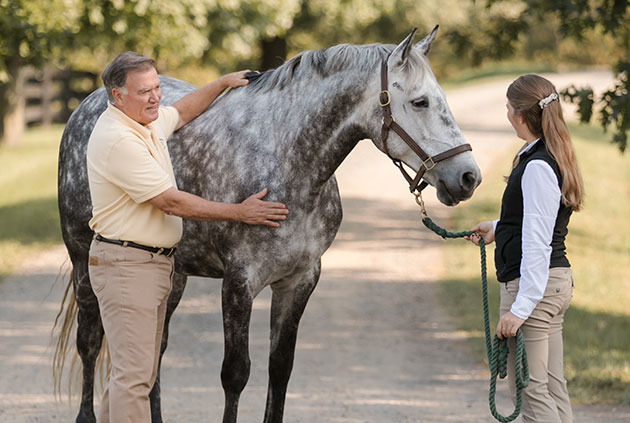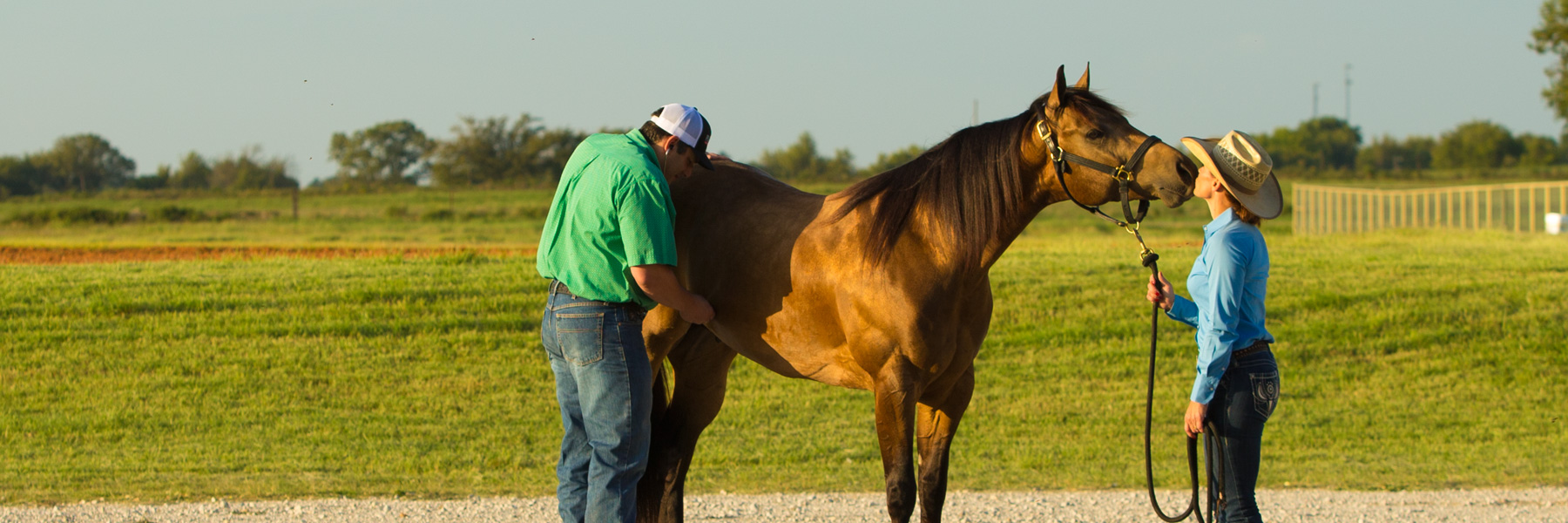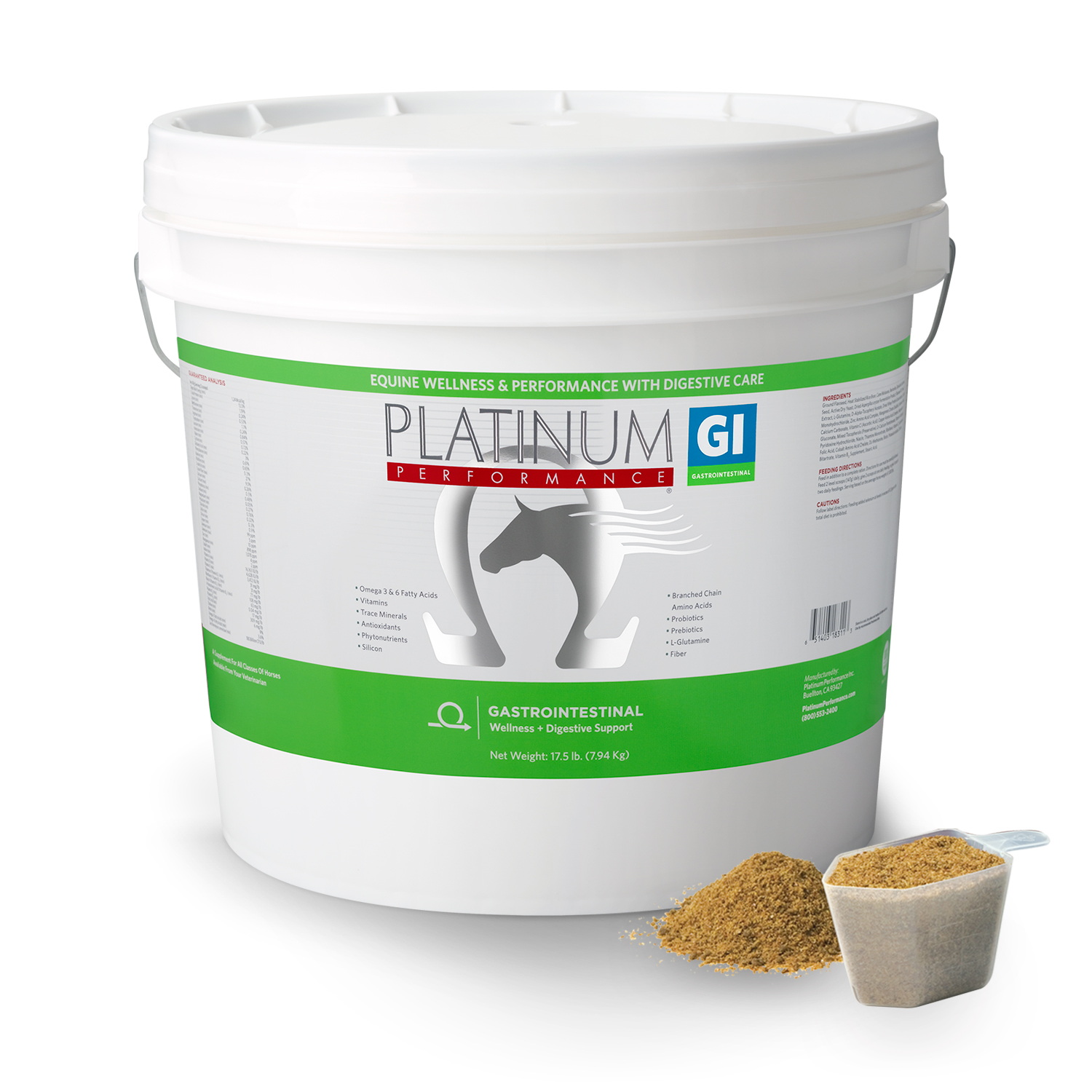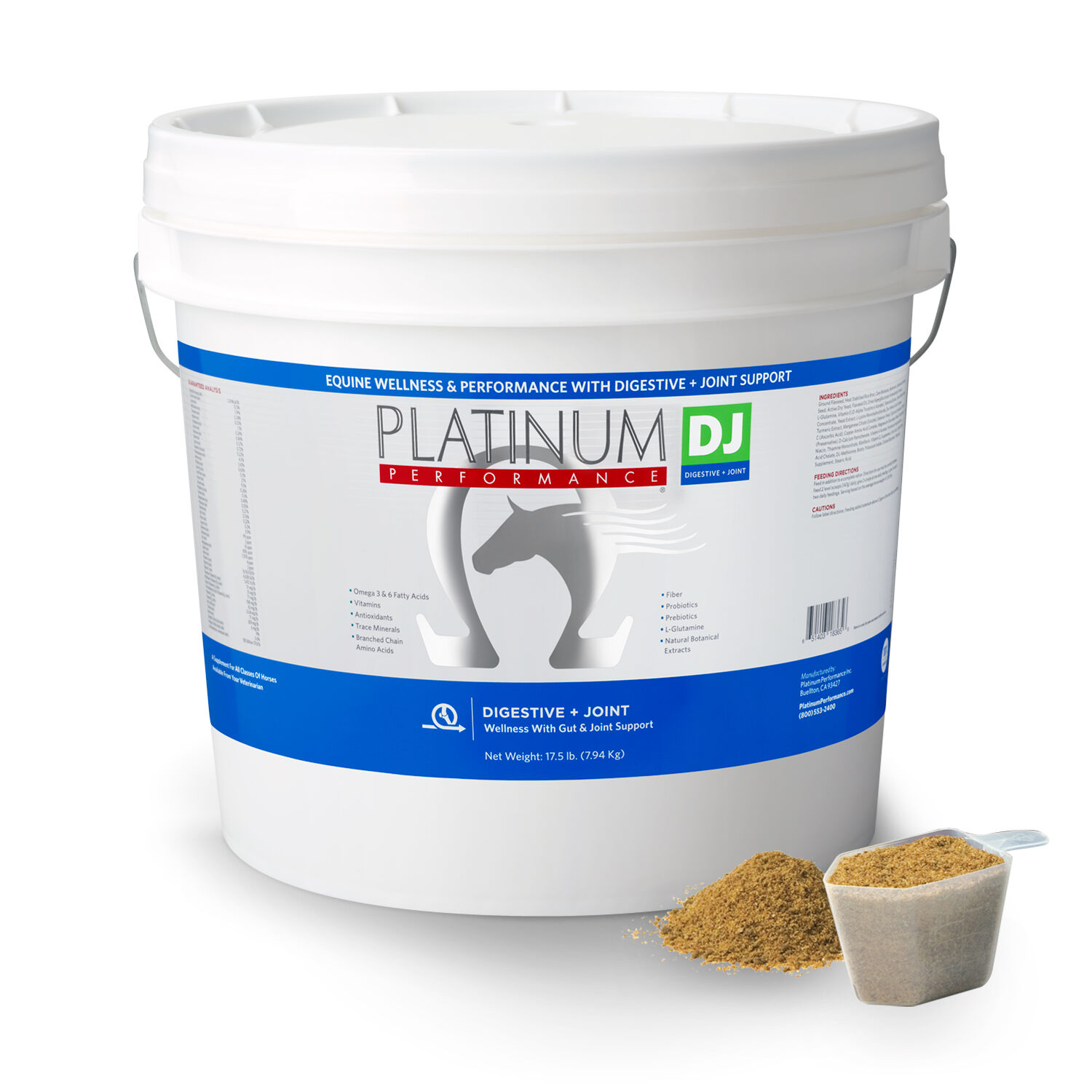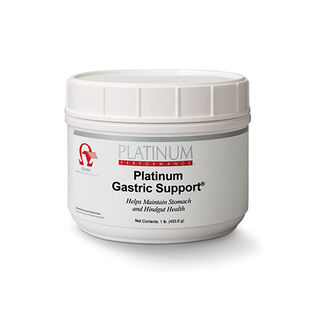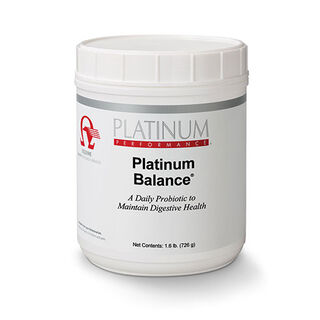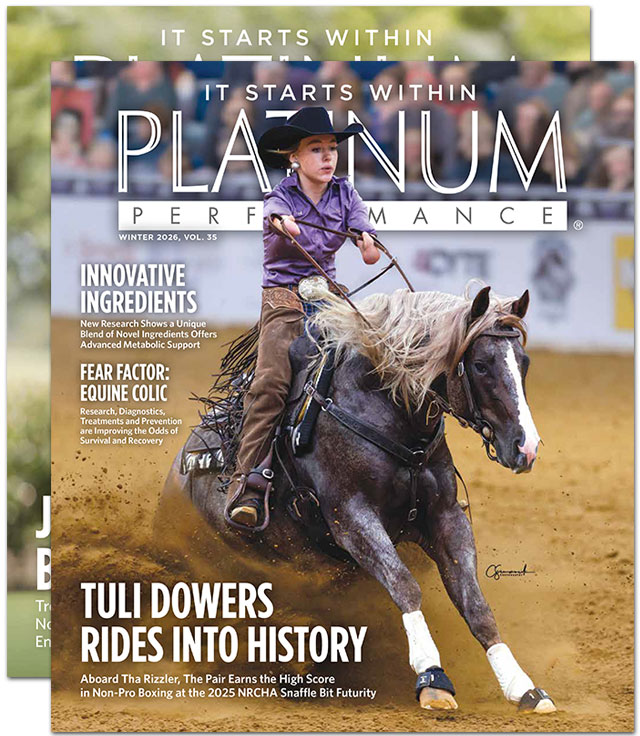Probiotics & Functional Nutrition Influence Digestive Health & Beyond
“No hoof, no horse” is a proverbial phrase used to describe the importance of the most distal portion of the equine appendage, but should the most important one-liner in the equine industry be “no guts, no glory?” Current research is pointing to another area of equine health that may soon be taking over headlines. The health of the equine gut, or gastrointestinal tract, is highly correlated to not only general digestive well-being but has far-reaching implications in significant areas of health including immunity and allergic response, reproduction, neurology and cognition, endocrinology and skeletal integrity. It is becoming clear that the relative health of the microflora that inhabit the equine gut can either be a benefit or a detriment to the health of the horse. Nurturing the essential microflora through nutrition may be a key to unlocking health benefits in digestion and much more.
Meet the Microflora
The microflora, also called the gastrointestinal (GI) microbiota and intestinal flora, refer to the immense population of bacteria, as well as protozoa, fungi (yeast), viruses and archaea, that reside in the equine colon and cecum. Being responsible for the fermentation process of fiber and digesta in the hindgut, the microflora are directly responsible for making a significant amount of energy available to the horse in the form of the volatile fatty acids, thus having an enormous impact on health and performance. Past studies have focused on the hindgut fermentation process and the results of microbial imbalances or shifts, known as dysbiosis. The results of this shift can result in such discord as acute colitis, equine grass sickness and laminitis. Due to technical advancements and bioinformatics, more recent focus has moved forward into actual microbial identification and composition, which lend understanding as to which specific strains are in abundance or lacking in healthy horses compared to those with disease states. Research on the microbiome is an exciting frontier that focuses on the genes that microbial cells contain and the numerous clinical influences it may have. Although still in its infancy, this newly-illuminated path that leads prebiotics, probiotics and functional nutrition to achieve optimal health is captivating.
Did You Know?
70%
Or more of the total immune system is nestled in the floating curves, folds and pouches of the intestinal tract
The bacterial world that lives within the horse’s cecum and colon is as sensitive as it is diverse. There is a delicate balance between the colonization of beneficial and pathogenic microbes. When the scales tip toward the “bad” strains, there is a much higher chance of gastrointestinal dysbiosis, which may lead to systemic disease. High grain feeds, antibiotic treatments, stress from traveling or hard training and competition, and changes in feed type and volume can disrupt the delicate microbial balance within the GI tract. This opens the door wide for sickness and disease. Ben Buchanan, DVM, DACVIM, DACVECC at Brazos Valley Equine Hospitals (Navasosta) notes, “it is hard to comprehend the impact that the microbiome has on health. As more research is published, it will only validate that what was once an afterthought has a primary impact on health. The expanding knowledge base on the hindgut is incredible. The impact it has on not just GI health but overall condition continues to evolve how we look at nutrition. I think any GI case, whether that is weight loss, loose stool or chronic colic can be positively impacted by nutrition and manipulating the microbial population of the gut.”
“I use probiotics with prebiotics routinely in the majority of our horses, as well as in post-operative colic cases to support normal gastrointestinal function.”
Diana Hassell, DVM, PhD, Dipl. ACVS, ACVECC, Associate Professor of Equine Emergency Surgery & Critical Care at Colorado State University’s Veterinary Teaching Hospital
More Probiotics, Please
Probiotics are live microorganisms, usually bacteria or yeast, that provide a beneficial and health-promoting effect when ingested at adequate concentrations. They are administered with the goal of encouraging the growth and activity of the beneficial bacteria in the digestive tract. Prebiotics are non-live, inert compounds that act as a dietary source for the microbes and contribute to the growth, survival and function of the desirable microflora.
Probiotics have been known for centuries to support intestinal microbial balance. Forward-looking research on specific microflora strains and the microbiome show many areas that could be influenced by a healthy gut or lack thereof. Food allergies is one area of interest. There is evidence of gut bacteria malfunctioning on high sugar diets and linking to neuroinflammation and cognitive dysfunction. Gut microbes show involvement in glucose metabolism in connection to obesity, as well as a lack of diversity of microbes in horses with Equine Metabolic Syndrome. The health and well-being of the microbial world in the gut goes far beyond digestion and feed efficiency and likely influences every major system of the body.
There is a huge range of benefits for supplementing with pre- and probiotics and also a wide range of equine ages and stages that could benefit from supplementation. Today, there are many instances in which probiotics are commonly recommended including those suffering from gastrointestinal upset, as well as those horses that occasionally are susceptible to it. And there are other lesser thought of instances where probiotics may be included as part of a wellness protocol. Horses during certain treatments should be put on probiotics as medications not only kill off harmful bacteria but kill off the beneficial organisms in the process. Associate Professor of Equine Emergency Surgery & Critical Care at Colorado State University’s Veterinary Teaching Hospital, Diana Hassell, DVM, PhD, Dipl. ACVS, ACVECC, says, “I use probiotics with prebiotics routinely in the majority of our horses, as well as in post-operative colic cases to support healthy gastrointestinal function.” Growing foals may also benefit from probiotic supplementation as they are actively acquiring microflora from the environment. Horses acclimating to stressors of all different varieties — including travel, competition, illness, dietary change or environmental change — should be receiving probiotic support. Senior horses eventually lose the ability to absorb several nutrients; probiotics can support digestive efficiency and nutrient absorption, particularly if the horse is having difficulty maintaining body condition. Virtually any horse could benefit from daily probiotics due to their strong correlation with gastrointestinal balance.
Choosing the Right Formula for Your Horse
Platinum Performance® GI provides a gastrointestinal-focused approach to total horse health. Because an estimated 70-80 percent of the immune system lives in a horse’s digestive tract, gut health is not only important for proper digestion but also has far reaching implications on immune health and comprehensive wellness. This veterinary-developed formula provides omega-3 fatty acids, antioxidants, vitamins and trace minerals for total body health, along with Bio-Sponge®, prebiotics, probiotics and glutamine for advanced digestive support.
By combining advanced support for healthy digestion and joint function with premium wellness ingredients, Platinum Performance® DJ is an innovative one bucket solution to horse health and longevity. This veterinary developed formula combines the benefits from Platinum Performance® Equine with probiotics and yeast extracts that support intestinal integrity and immune health. Additionally, this formula introduces a novel combination of tamarind and turmeric extracts that maintains healthy levels of inflammation and provides powerful joint nourishment.
Platinum Gastric Support® focuses on a healthy stomach and hindgut environment. It supports healthy levels of gastric acid and intestinal proteins combined with S. boulardii, a daily probiotic, to support intestinal microflora.
Platinum Balance® is a pre- and probiotic blend with added glutamine to support gastric and hindgut health. The ingredients work synergistically to nourish an efficient and thriving hindgut microbiome allowing the horse to get the most out of the daily feeds consumed.
“It is hard to comprehend the impact that the microbiome has on health. As more research is published, it will only validate that what was once an afterthought has a primary impact on health. The expanding knowledge base on the hindgut is incredible.”
Ben Buchanan, DVM, DACVIM, DACVECC, Brazos Valley Equine Hospitals, Navasosta
You are What You Eat
Functional nutrition is the foundational way that what the horse consumes affects his body on the cellular level. The horse’s diet is, of course, fuel, but it must also be nourishment. What the horse eats is a direct message to his biochemistry, and on the cellular level what the horse eats can elicit a response to how he looks, feels and behaves stemming from within. This is especially true for the gut as an estimated 70% or more of the total immune system is nestled in the floating curves, folds and pouches of the intestinal tract. What the horse eats has the ability to support its health and well being. The emphasis of functional nutrition is on horses being fed in a way that seeks out and reaches towards health. It examines the delicate balance of the dietary landscape to address general health and the uses therapeutic ingredients have to address dysfunction. There is a way to care for horses that nourishes and encourages them toward optimum functioning, and it happens from the inside-out.
Let food be thy medicine, and medicine be thy food. — Hippocrates

by Emily Smith, MS,
Platinum Performance®
You May Also Like
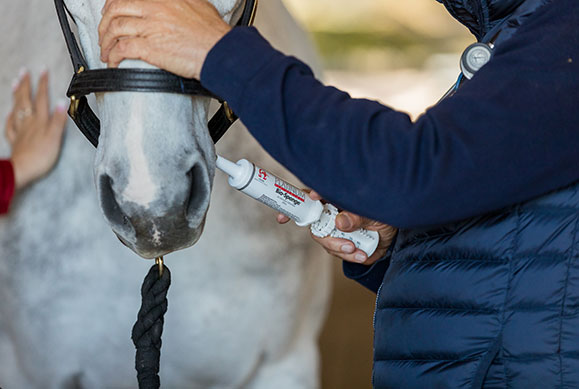
Bio-Sponge® For Horses
Supporting Healthy GI Function: Using Bio-Sponge® for The Intestinal Health and Well-Being of The Horse and Foal
Read More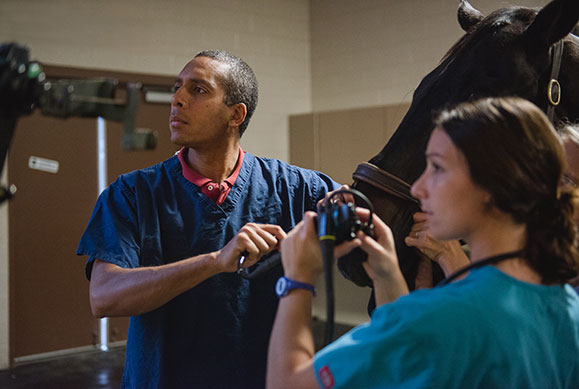
Understanding Ulcers
Potential Causes, Treatments and Preventatives
Read More about Ulcers in Horses